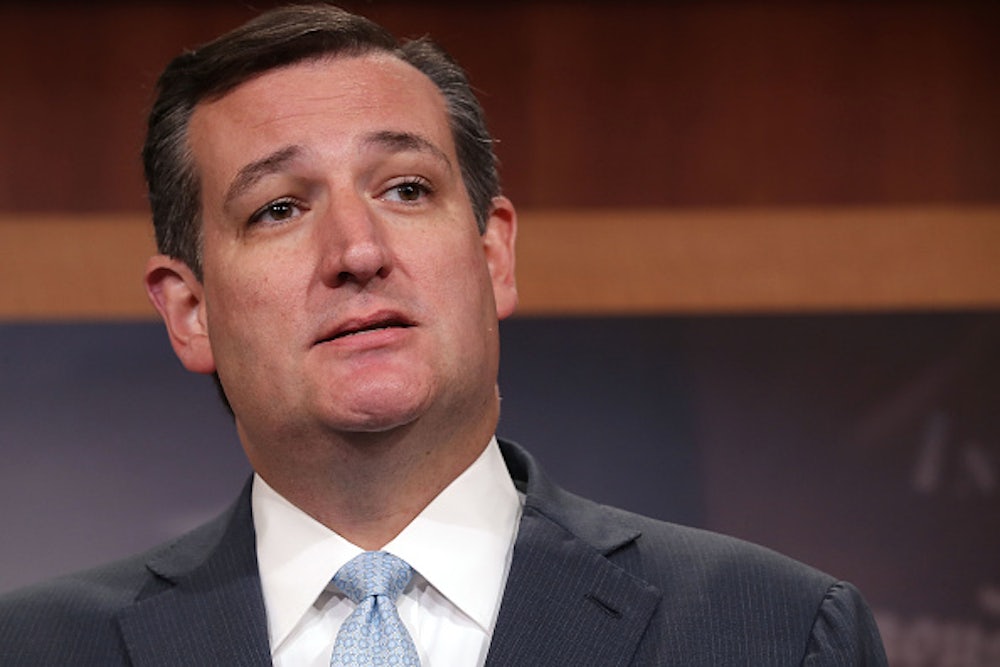On Friday, Ted Cruz was set to become one of many prominent party members to bite the bullet and endorse Trump, a complete 180 reversal on his previous condemnations. Cruz caused a spectacle of disunity at the GOP convention in July, during which he was booed offstage for refusing to endorse the nominee and urging Republicans to “vote your conscience.” With Hillary Clinton up in the polls at the time, it appeared that Cruz was making a shrewd political bet that Trump would lose the election.
The race, however, has since tightened, and Cruz might now bank his career on ingratiating himself with Trump’s supporters in the interest of a future presidential bid. Richard Nixon embraced the same strategy with Barry Goldwater (to whom Trump is frequently compared) in 1964, campaigning aggressively on behalf of the candidate and currying favor with his wing of the GOP. When Nixon himself launched a presidential campaign in 1968, he was embraced by both the conservative movement and GOP establishment as a compromise candidate. Of course, Goldwater also didn’t insult Nixon’s wife or say that Nixon’s dad helped kill JFK.
But if Cruz is wrong about the outcome of the election, the fallout would be crippling. While prominent party leaders like Paul Ryan have offered lukewarm endorsements of their party’s nominee, they have carefully distanced themselves from Trump’s thornier policies, leaving room to condemn him should he lose the election. But Cruz’s backpedalling on such a dramatic display at the convention should raise questions about his tendency to embrace political opportunism over principles. For now, at least, he’s riding Trump’s coattails with Chris Christie.
